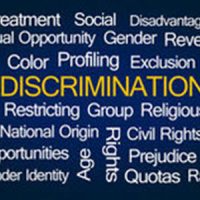Can You Get Punitive Damages in an Employment Discrimination Case?

In an employment discrimination case, just like in many types of cases where someone is injured or wronged, the purpose of damages is to make the victim whole. In employment law cases, that can include lost wages, or financial losses because of harassment or discrimination. That can also include compensation for the victim’s emotional or mental trauma, anxiety, fear or trauma.
Punitive Damages
But there is one type of damage, which is unique from all the rest: punitive damages. Punitive damages are designed to punish the wrongdoer, and to deter the wrongdoer from repeating its prior activity.
Because it is punitive in nature, punitive damages are difficult—but not impossible—for employees to get in an employment law case.
How to Get Punitive Damages
Getting punitive damages requires a much higher burden of proof, for a victim.
The first hurdle is that the employee who was victimized must show that the behavior by the employer, was particularly oppressive or malicious; think of it as being almost akin to actions that are taken with a subjective intent to harm, or actions which are so bad, that they would shock the conscious of the typical citizen.
The employee must also prove that the employer had some direct responsibility in the discriminatory behavior—or at least, that the employer had prior notice and/or ignored what was going on, or obviously or tacitly, supported the discrimination.
If you do have evidence of these factors, you’ll need to prove them by clear and convincing evidence. That’s a higher burden than in most civil and employment discrimination cases, which generally require a preponderance of the evidence standard (that is, the victim must show 51% of the evidence is in his or her favor).
When Are They Warranted?
Because all forms of discrimination and harassment are inherently distasteful and offensive it can be hard to show where “normal discrimination” ends and discriminatory actions so egregious, that they warrant punitive damages, begins.
There is no definitive objective test; the seriousness of harassing or discriminatory behavior, will depend on the facts of each individual case.
Anything that the employer does which is purposeful, may qualify. That could include purposefully ignoring harassment in the workplace, or an employer making offensive, crude, demeaning remarks coupled with discriminatory behavior, or harassment that is so sustained and ongoing over time, that it merits punishment.
Certainly any kind of unwanted touching, groping, or physical activity would qualify.
Any policy in the workplace, enforced by the employer, which is discriminatory, could warrant punitive damages, as could open, obvious, and blatant retaliation against an employee.
How Much are the Damages?
There is no limit on how large a punitive damage award can be, but the law does say that it should be relative to both the discriminatory behavior, as well as to the financial condition, size, and finances of the employer.
The judge or jury will have to come up with an amount that doesn’t completely bankrupt the company/employer, but which also sends a clear message that the employer’s behavior will not be tolerated.
For example, Tesla Inc. faced an individual race discrimination lawsuit in which Owen Diaz, a former elevator operator at Tesla’s Fremont factory, alleged that he faced harassment and racial slurs. At trial, Mr. Diaz argued that the use of racial slurs was pervasive and virtually everywhere at the Fremont factory, and that the working conditions were so physically demanding and unacceptable that many Black employees quit. On October 4, 2021, the jury awarded Mr. Diaz $6.9 million for emotional distress and $130 million in punitive damages.[1]
Contact the San Jose employment lawyers at the Costanzo Law Firm today if you have been a victim of discrimination of any kind at work.
Sources:
advocatemagazine.com/article/2015-february/punitive-damages-punishing-and-deterring-oppression-fraud-and-malice
advocatemagazine.com/article/2021-october/proving-punitive-damages-in-employment-cases
